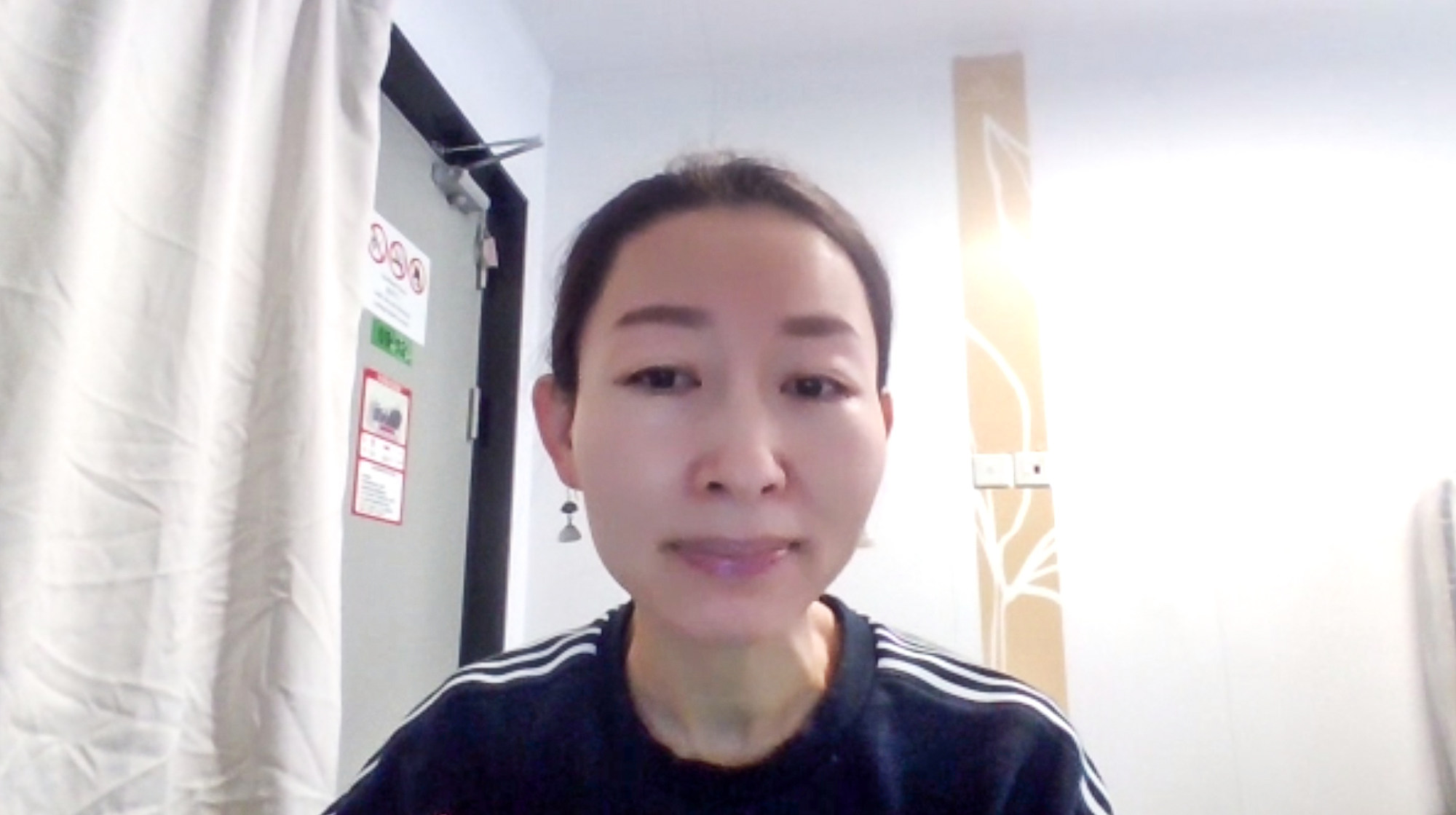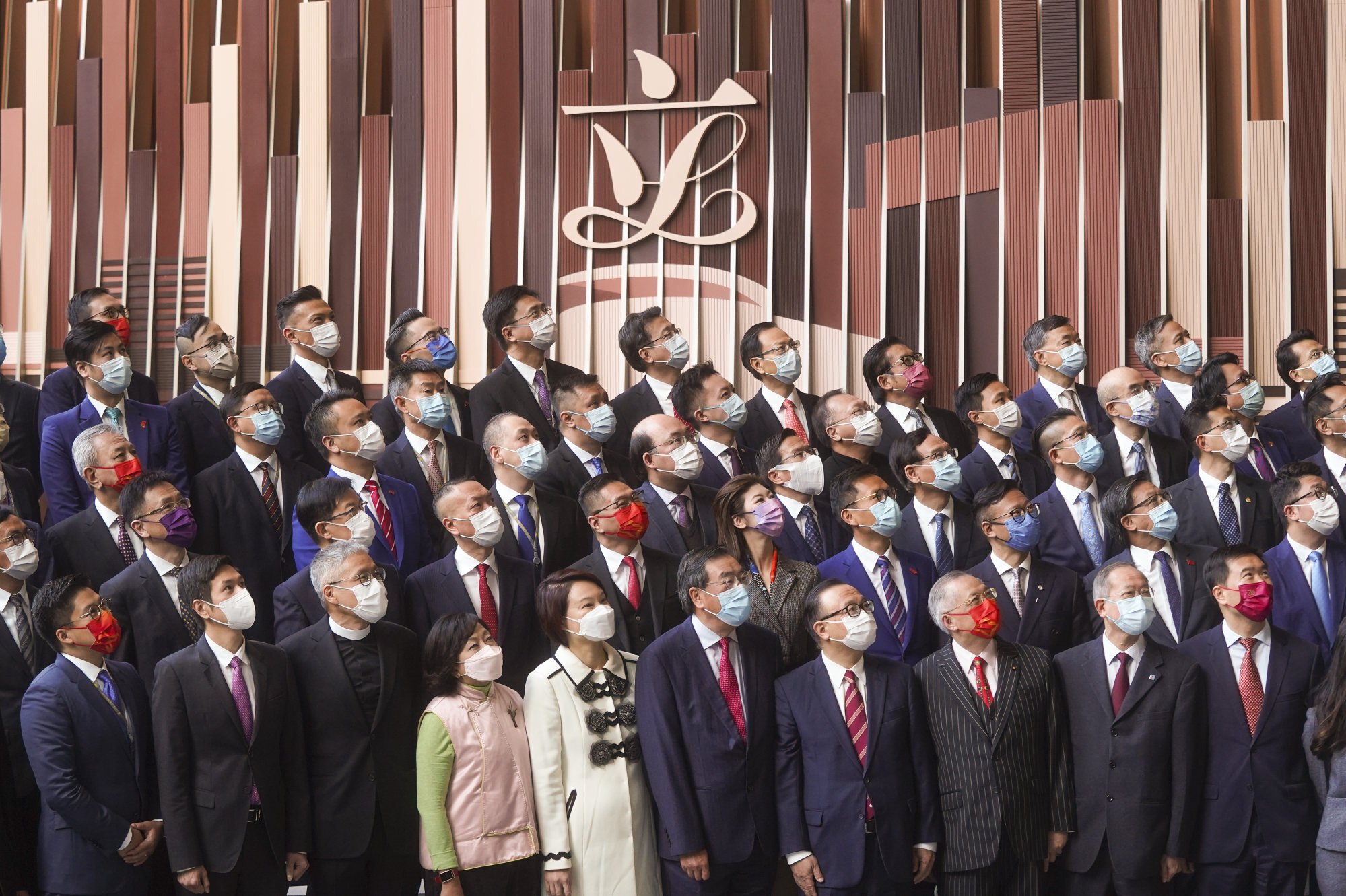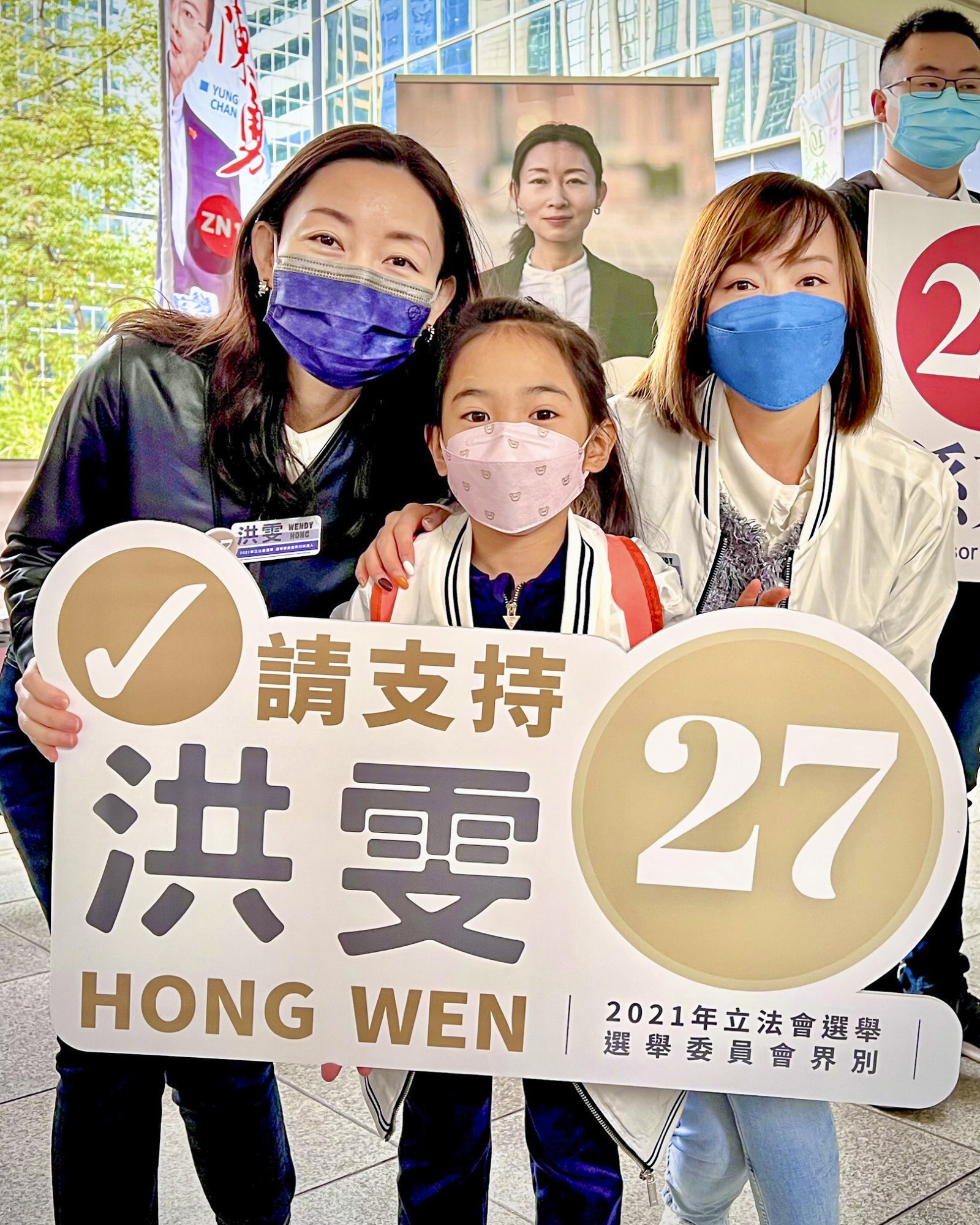
Legislative Council novices: mainland Chinese transplant wants to close gap between the ‘2 Hong Kongs’
- Wendy Hong says the city caters for the interests of wealthy elites, while shutting everyday residents out of its economic prosperity
- She also vows to tackle the social welfare burden posed by fellow mainlanders relocating to Hong Kong through the ‘one-way permit’ scheme
Hong Kong’s “partygate” scandal has proved a tough first lesson in politics for freshman lawmaker Wendy Hong Wen.
Hong’s attendance at a now-infamous birthday bash that saw nearly 20 lawmakers and officials quarantined after they were exposed to two Covid-19 patients on January 3 – the same day she was sworn into office – led to her spending the first two weeks of her Legislative Council term in a government isolation facility at Penny’s Bay.
Due to be released on Friday, she and three other newly-elected legislators – Benson Luk Hon-man, Duncan Chiu and Rock Chen Chung-nin – have had to skip all in-person Legco meetings since their internment.
Hong Kong surgeon-turned-lawmaker hopes to improve primary health care services
In a wide-ranging remote interview with the Post, Hong, elected in the new Election Committee constituency under Beijing’s “patriots-only” political overhaul, apologised again for attending the party and conceded that the scandal took a toll on her image.
“I have no excuse … [The scandal] reminded me to be very careful and sensitive about my conduct,” she said in a video call.
“I should have thanked my voters with my performance in Legco instead of by greeting them [at the party].”

A significant portion of the party’s more than 200 guests – including its host, pro-Beijing political figure Witman Hung Wai-man – were among the 1,448 members of the powerful Election Committee, which picks the city’s leader and returns 40 lawmakers to the legislature.
As one its chosen representatives, Hong, 46, is part of an emerging force in the new Legco known as “gangpiao”, or “Hong Kong drifters”, a term used to describe mainland Chinese who move to the city for work or remain here to launch careers after graduating from local universities.
“I am a Hong Kong drifter who is not drifting at all,” she said. “I have long been rooted here for more than 20 years and regard Hong Kong as my home.”

Born in Guizhou, one of China’s poorest provinces, Hong pursued a PhD at the University of Hong Kong in 2000 before joining the city government’s Central Policy Unit as a researcher in 2007.
She then shifted to the private sector, leading studies at the Fung Business Intelligence Centre from 2013 and joining New World Development as its head of research in 2019.
Hong estimated gangpiao could account for as many as 300,000 of the city’s 7.5 million residents, but vowed not only to speak up for their interests, but also those of all lower- and middle-class Hongkongers.
One issue she vowed to tackle during her four-year term is the social welfare burden posed by mainlanders relocating to Hong Kong through the “one-way permit” scheme, a policy regarded by some in the pro-establishment bloc as untouchable.
She proposed halving the daily quota for mainlanders allowed to come to the city under the scheme from 150 to 75 to ease cross-border tensions.
Legco’s odd man out to press for democratic reform, better welfare services
More than 1 million mainlanders settled in Hong Kong under the scheme since it was implemented in 1997, with some blaming the new arrivals for overcrowding at public hospitals.
“Permit holders unfairly enjoy Hong Kong’s welfare [programmes]. The scheme has also instilled negative perceptions towards mainlanders and the country,” Hong said. “It is not a win-win solution. It is time to conduct a review.”
A similar suggestion two years ago by Adam Kwok Kai-fai, executive director of Sun Hung Kai Properties, was quickly rebuffed by city leader Carrie Lam Cheng Yuet-ngor, who said the policy was necessary to reunite families and that all applications were vetted by mainland authorities.
Sun Hung Kai even distanced itself from Kwok’s remarks, issuing a statement saying he had been speaking “in his personal capacity”.
Asked how she would persuade the central government to lower the quota, Hong said “objective facts and figures would speak for themselves”, but did not give details.

Hong has joined with 18 colleagues in the 90-seat Legco to form a coalition called “G19” to better coordinate among the politically unaffiliated.
Identifying herself as “a researcher lawmaker” in the coalition, Hong said she hoped to take lessons learned while writing a book on the city to close the gap between what she described as the “two Hong Kongs”.
One Hong Kong is the internationally renowned financial centre that caters for the interests of wealthy elites, she said, while the other is a place where middle-class and low-income residents are shut out of the city’s economic prosperity.
Hong called on the government to diversify the city’s economy by formulating a comprehensive industrial development plan after years of overreliance on the finance sector.
Priest lawmaker hopes to give jailed Hong Kong protesters a second chance
The Northern Metropolis, a planned mega project in the New Territories intended to serve as a technological and residential hub, could serve as a testing ground, she added.
“The plan must be initiated with the spatial development plan simultaneously. Otherwise, errors like the ‘job-housing mismatch’ we can see in new towns like Tin Shui Wai may occur,” Hong said.
Hong said she would carry out studies to see how Hong Kong could learn from Singapore and Switzerland in diversifying its economy, though she did not offer concrete examples.
She added that it would be a “very creative idea” to apply a new set of laws to the proposed Northern Metropolis to eliminate red tape and facilitate the flow of talent across the border.
That controversial suggestion, earlier proposed by former Hong Kong Exchanges and Clearing chief executive Charles Li Xiaojia, had sparked a backlash, with critics worrying it would undermine the “one country, two systems” governing principle and legitimise Beijing’s influence over local affairs.
Hong, however, said Hongkongers needed to “open up our minds”.
“Our key values won’t be undermined as long as judicial independence is guaranteed here,” she said
In part five of this six-part series, the Post meets Ambrose Lam San-keung, the first pro-establishment figure to represent the legal sector since the city’s handover







